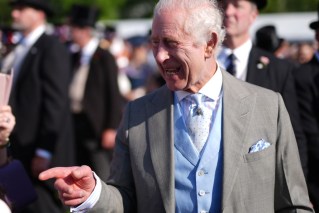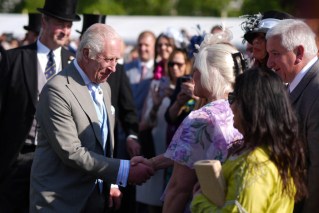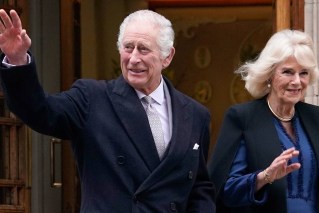Prince Andrew’s secrets remain locked, as speculation on royal return mounts

Prince Andrew’s secrets are going to remain under lock and key until 2065, thanks to a rule that applies to the entire royal family.
The news comes as signs emerge the Duke of York is being sensationally welcomed back into the royal fold, following a banishment from public life after revelations on his dealings with Jeffrey Epstein.
On Monday, it was revealed historian and royal biographer Dr Andrew Lownie had made a Freedom of Information request to the UK’s Foreign Office seeking information about Prince Andrew, the younger brother of the King.
Dr Lownie is writing a book about the Duke of York and has reportedly made numerous requests seeking clarification on Prince Andrew’s taxpayer-funded business trips.
However, Britain’s Foreign Office will not release files relating to the ousted prince until 2065, when he will be 105 (should he live that long).
According to The Times, the reason the secrets will remain hidden until 2065 is thanks to a rule that ensures documents involving the British royal family remain sealed for 105 years after their birth.
From 2001 to 2011, the Duke of York was a British trade envoy. He resigned after his alleged friendship with controversial figures, such as Epstein, came to light.
Speaking to The Telegraph, Dr Lownie said members of the royal family were not subject to the Freedom of Information Act, but expressed hope that would change.
He also pointed out the irony of the information being sealed until 2065, when the King’s son, Prince Harry, has been able to reveal intimate details about the family and royal households can “brief against each other”. Despite that, he, a historian, cannot access files.
“Many questions remain about his role as trade envoy, a public appointment paid for by the taxpayer, and his associations with figures such as Jeffrey Epstein,” he told The Telegraph.
“There is also a strong public interest in knowing, for example, who is paying for his security now he is no longer a working royal.”
Tweet from @andrewlownie
Will Prince Andrew resume royal duties?
Last week, Prince Andrew was seen in the same vehicle as the Prince and Princess of Wales, William and Kate, travelling to a church service in Balmoral.
Just a few years ago Andrew, Queen Elizabeth’s third child, was forced to relinquish his royal duties following the fallout of his association with Epstein.
While in Epstein’s company, Prince Andrew met Virginia Giuffre.
Ms Giuffre accused him of sexually abusing her when she was underage; the two eventually settled out of court and Prince Andrew denied any wrongdoing.
Amid the Epstein scandal, Prince Andrew was stripped of his military titles and could not use the title ‘His Royal Highness’ in any official capacity.
However, the photograph has led to speculation that he might be being welcomed back.
According to The Mirror, Prince William did not want his uncle in the same car as him, but his father insisted on it. Sources claim the heir to the throne does not want to be seen in public with his uncle.
However, as Marina Hyde pointed out in an opinion piece for The Guardian, everything the royal family does is well thought out.
She opined that sticking Andrew in a car with his nephew isn’t a “random thing”, but a “planned and choreographed moment”.
Will the public forgive Prince Andrew?
William might not be the only one who isn’t willing to accept Andrew.
Modern monarchy history professor at the University of London and royal commentator Anna Whitelock told the BBC people simply were not ready for his return.
She believes the family’s focus should be on repairing the relationship with California-based Prince Harry.
Solicitor and reputation expert Gideon Benaim also spoke to the BBC, saying the public wasn’t ready to forgive Prince Andrew, but that people are willing to tolerate rehabilitation.
“The public has clearly cast Prince Andrew into a bleak reputational pit and few are ready to consider or accept his rehabilitation,” Mr Benaim said.
“However, people also like to forgive.
“If, with the passage of time, they are provided with evidence of genuine contrition, humility and a sense that a person has learned the lessons of their own poor behaviour, they will tolerate rehabilitation.”








